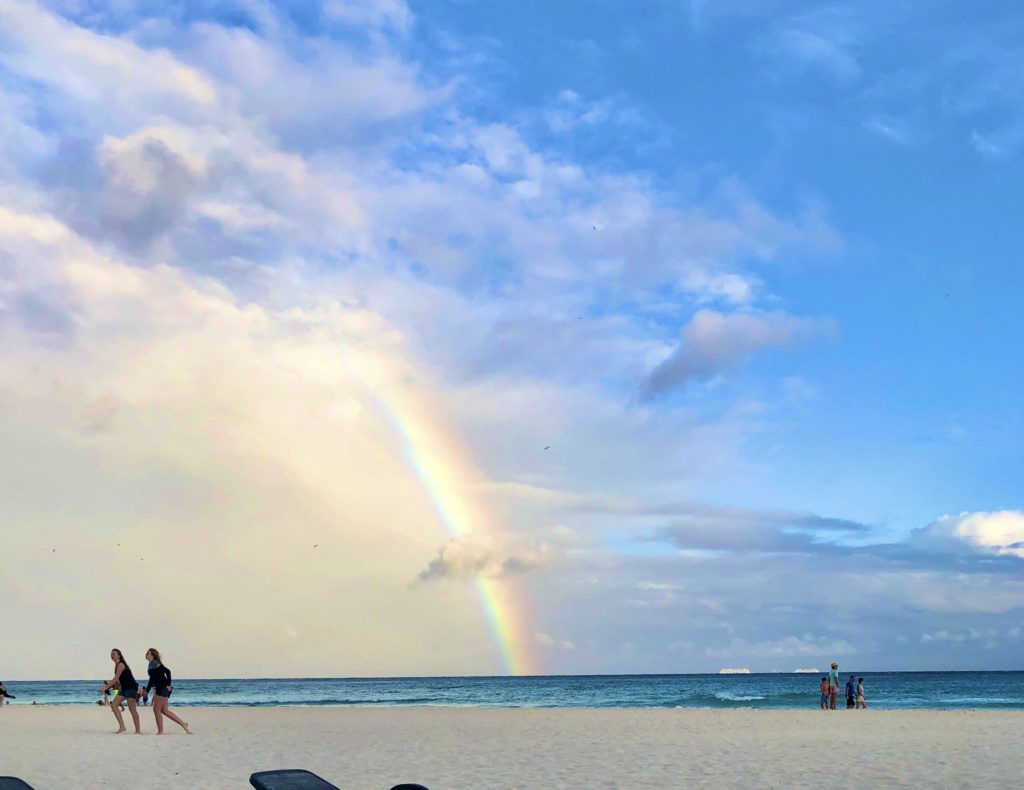“If there’s a heaven for me, I’m sure it has a beach attached to it.”
-Jimmy Buffett
Some of my fondest childhood memories are of summers at the beach. To this day, the smell of saltwater and the sand beneath my feet makes me smile. My favorite vacations are beach vacations, and if I ever win the big lottery, you will find me relaxing at my new oceanfront villa.
The allure of the beach is powerful. A recent survey (Kunst, 2017) found the beach to be the most popular destination for US vacationers. It’s no surprise that Gallup Poll’s National Health and Well-Being Index has consistently listed Hawaii as the top state, with its residents reporting the highest scores on how they feel about their health, relationships, careers, finances, and communities.
Not only is the beach fun, but spending time by the ocean is good for your health. According to a recent study (Garrett et al., 2019), people who live closer to a coast report better physical and mental well-being than those who live further inland. Another study, (Peng et al., 2016), found that those who live in homes with ocean views felt calmer and had a greater sense of well-being than those without such proximity. These benefits were even more pronounced for lower-income populations, as those living within a mile of the ocean were 40% less likely to show signs of a mental health disorder than those earning the same amount who lived further inland.
Why does the beach have such a powerful impact?
According to psychologist Dr. Richard Shuster, “the color blue has been found by an overwhelming amount of people to be associated with feelings of calm and peace.” Dr. Shuster added that staring at the ocean affects our brain waves and “puts us into a mild meditative state.” A study, published in Science (Mehta & Zhu, 2009) showed that the color blue enhances performance on cognitive tasks, whereas the color red caused avoidance.
In his book, “Blue Mind: The Surprising Science That Shows How Being Near, In, On, or Under Water Can Make You Happier, Healthier, More Connected, and Better at What You Do,” marine biologist Wallace Nichols writes about the connection between people and the sea. He believes we all have a “blue mind,” which is a meditative state characterized by peacefulness and a sense of happiness and satisfaction that is triggered when we’re in or near water. Nichols writes that we are “hardwired to react positively” to the ocean.
The beach is good for us.
The sun and waves are proven to relieve stress. In fact, serotonin (a neurotransmitter that is considered to be a natural mood stabilizer) is released when you arrive on the beach. We also know that sunlight stimulates the body to produce vitamin D, which is essential for optimal health. Vitamin D deficiency results in abnormalities in calcium, phosphorus, and bone metabolism. This can cause bone weakness, decreased bone mineral density, osteopenia, osteoporosis, and even skeletal deformities. Without adequate exposure to sunlight, people are also more prone to depression. Seasonal affective disorder (SAD) is a type of depression that frequently occurs during the winter months. Light therapy has even been used to treat SAD
In addition to sunlight, the rhythmic sound of the waves produces a calming effect, which is part of the reason sleep machines utilize these sounds. According to Dr. Orfeu Buxton, Professor of Biobehavioral Health at Pennsylvania State University, “these slow, whooshing noises are the sounds of non-threats, which is why they work to calm people . . . it’s like they’re saying: ‘Don’t worry, don’t worry, don’t worry.”
After a long winter, marked by the shelter in place orders, uncertainty, and fear, we all could use some time at the beach to recharge our solar batteries and get a dose of Vitamin SEA.
References:
Garrett, J.K., Clitherow, T.J., White, M.P., Wheeler, B.W. & Fleming, L.E. (2019). Coastal proximity and mental health among urban adults in England: The moderating effect of household income. Health & Place, 59 1-11.
Peng, C., Yamashita, K. & Kobayashi, E. (2016). Effects of the Coastal Environment on Well-being. Journal of Coastal Zone Management, 19:2.
Mehta, R. & Zhu, R. (2009). Blue or Red? Exploring the Effect of Color on Cognitive Task Performances. Science. 323 1226-1229.
Nichols, W. Blue Mind: The Surprising Science That Shows How Being Near, In, On, or Under Water Can Make You Happier, Healthier, More Connected, and Better at What You Do. Back Bay Books: Boston. 2015.







